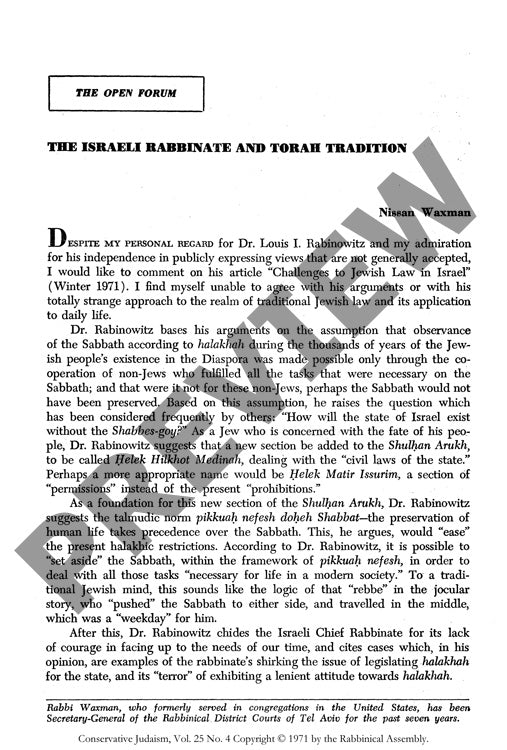Israeli Rabbinate Torah Tradition
Couldn't load pickup availability
Jewish religious leadership's cautious approach to modernizing halakhah (Jewish law) reflects profound wisdom rather than institutional paralysis, contrary to Dr. Louis I. Rabinowitz's calls for radical adaptation to meet modern Israeli state needs. Through analysis of classical Jewish sources, including the Talmud, Shulhan Arukh, and medieval commentaries, a clear pattern emerges of Torah commandments centered on individual spiritual commitment rather than communal convenience. The methodology involves close reading of traditional Jewish texts and historical precedents, revealing that Sabbath observance historically depended on personal dedication rather than reliance on non-Jewish assistance. Three significant historical examples - King David's death, ritual observances during Sabbath, and wartime conduct - demonstrate the meticulous care taken to avoid Sabbath violations even in matters of national importance. The evidence suggests that halakhah has consistently prioritized individual religious obligations over institutional expedience, and that the Israeli Chief Rabbinate's measured approach to halakhic adaptation represents appropriate reverence for tradition. Far from being a weakness to overcome, fear of God remains a fundamental virtue in Jewish religious leadership, essential for preserving the integrity of Torah tradition in modern times.

More Information
-
Physical Description
-
Publication Information
Published 1971
ISBN
-
Publication Credits

